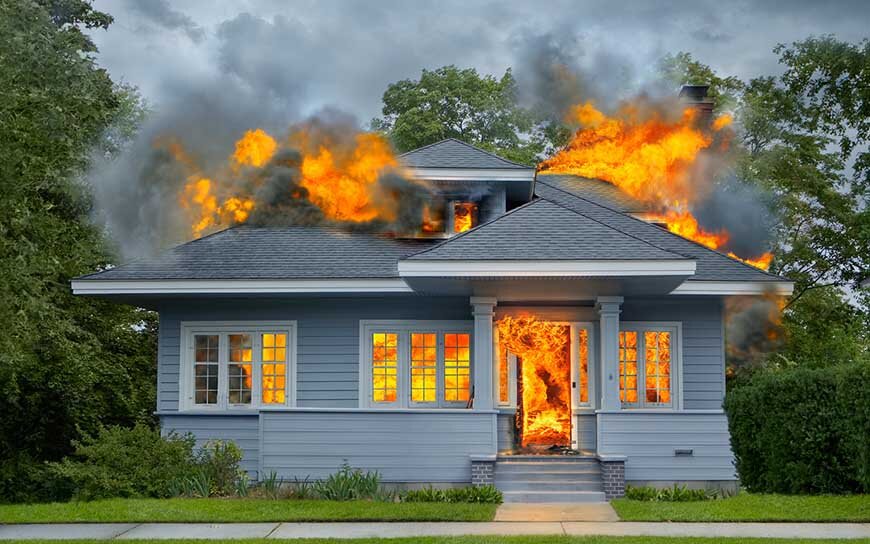Fireproofing your home is easy in six ways

An experience like a fire in your house can be incredibly frightening. There are approximately 37,500
In the wake of the Grenfell Tower tragedy and the wildfires threatening families and livelihoods in America and Australia, fire safety should be a top priority for everyone.
Are there any steps you can take to minimize the risks to your family, your home, and your possessions? There are some changes you can make to your house to make it more fire-resistant. You can find more information at acusfoc.com.
1. It is recommended to use fire retardant materials
It is possible for the materials used in buildings to be flammable themselves in some cases. You can avoid a potentially serious accident by installing a fire-proof interior and using fire retardant alternatives. It is the perfect time to make these changes when you are renovating or redecorating your home.
The exterior walls can be built with concrete panels or stucco, the windows can be framed with steel and the roof can be made either of metal or concrete. Paint that is fire retardant is also recommended. There are several deck materials that are better than one made of wood, such as concrete, bricks, tiles, or stone.
Learn about the different British standards and certifications before using fireproof fabrics in your home. You can also apply flameproofing to existing furniture and fabrics in your home.
2. Incorporate smoke alarms into your home
It is important to have smoke alarms installed in your house to give you an early warning in case of a fire. Smart smoke detectors also alert your phone when smoke is detected, while traditional smoke alarms beep when smoke is detected. The UK Fire Service Resources recommends installing smoke detectors in every room of the house except the bathroom. On each landing and between the living room and bedrooms, there should be one.
According to the room in which they are installed, smoke alarms come in four types.
The batteries of smoke alarms located away from vents should be changed every six months. A smoke alarm should be tested every year to ensure it is still functioning. The chances of dying in a home fire increase fourfold if you don’t have a functioning smoke alarm!
3. Extinguish the fire with an extinguisher
An extinguisher on hand will prevent a house from burning down in the event of a small kitchen mishap. A fire extinguisher can be classified according to the type of fire it is meant to extinguish. Learn how each type can be utilized in an emergency situation, as well as the differences between them.
4. Ensure that fire doors are installed in key areas
An entire house can be destroyed by a fire in less than ten minutes. Smoke and fire damage can be greatly reduced by turning on your home’s fire door at night, when fires are most likely to occur.
Depending on the door, fire doors hold back smoke, heat, and flames for 30 to 60 minutes, allowing you to escape a burning building.
5. Install a letterbox that is anti-arson
This direct, easy, and unmonitored entry into your house makes the letterbox the most vulnerable part of your house. When you become a target for an attack, whether for a discernible reason or for no apparent reason, you must be protected.
Designed to tackle flammable liquids poured through the letterbox, these anti-arson letterboxes feature a built-in extinguisher. Throughout the house, fireproof steel seals keep the fire from spreading and keep the house safe and sound. So it is much needed that you are using fireproof seals in your home and reduce the chance of huge loss.
6. Creating a fire-resistant landscape
The cause of wildfires, for instance, is external. By preventing them from reaching your house, you can stop them from reaching your home. In order to reduce your landscape’s vulnerability to fire spreading, follow these tips:
- By using concrete, gravel, or stone, you can hardscape your yard
- Keep the house’s surroundings dry in the summer by removing dry vegetation
- Plants such as lavender and honeysuckle are resistant to fire, and will slow down a fire and prevent it from spreading
- Don’t forget to water your outdoor plants during the summer. There is a lower fire risk with plants that have lush greenery.




